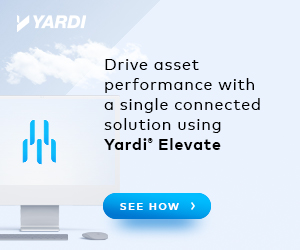How Real Estate Investors Can Navigate Higher-for-Longer Interest Rate Scenarios

Despite forecasts of interest rate cuts in early 2024, real estate investors have been stuck in a higher-for-longer environment, making it difficult to strengthen portfolios while borrowing capital remains expensive. How did we get here, and how can real estate investors navigate the uncertainty?
What is “higher for longer?”
The US experienced a booming post-pandemic economic recovery, but a tight job market and rising wages brought dramatic increases in inflation. To tame the hard-charging economy and avoid a recession, the Federal Open Market Committee (FOMC) raised interest rates 11 times between March 2022 and July 2023 – the most restrictive monetary policy in 40 years. A prolonged period without rate cuts has kept the economy in a “higher for longer” interest rate scenario.
How high interest rates affect real estate investing
High interest rates make it more expensive to borrow capital for new real estate deals. Banks have become much stricter with lending and refinancing criteria. The interest rate expense is causing investors to delay decisions, even while properties can be bought at a discount. Reduced levels of investment and budgetary limitations for borrowing have narrowed options for exit strategies in real estate portfolios.
Finding opportunities amid uncertainty
Research from Newmark indicates about $2T worth of commercial real estate loans maturing in the next three years. The growth of private credit and debt markets means companies facing equity challenges can shift some focus to private lending to improve returns. Organizations with large resources will have an advantage, as portfolios that can handle all-cash transactions will have little competition acquiring resources.
Fortunately, real estate organizations don’t have to plan for interest rate increases or related factors like rising material costs. However, that stability comes with a lack of investor enthusiasm. Portfolio managers must make their funds stand out in a world of alternative investments that might offer more attractive returns.
PropTech’s role in overcoming economic uncertainty
In a higher-for-longer environment, purpose-built technology can help portfolio managers closely monitor and manage assets. Even with a lack of large deals, the right automation and strategies can help firms test assumptions, strengthen decision making, and boost investor confidence and retention, keeping portfolios well-positioned in an evolving economy and the real estate market.
More accurate scenario forecasting and testing
Organizations can use asset modeling to test different scenarios and analyze the effects on asset performance and valuation across their portfolio. With the unclear picture of when interest rates will drop (and by how much), real estate investment firms must develop strategies for multiple scenarios and factors to better predict how interest rates will affect decisions on refinancing, selling, or buying an asset.
Analysis timing
The current economic uncertainty means portfolio managers can’t wait until the end of an asset’s lifecycle before testing interest rate scenarios. Frequent analysis will prepare organizations for different market and interest rate possibilities – and help them avoid letting new opportunities pass by.
Reliable data
Economic uncertainty requires a combination of historical precedent and current data for a strong analytical foundation. Unlike spreadsheets, open and connected solutions like MRI Investment Central unify multiple data sources (including third-party sources) across the portfolio, making it easier to see the full picture of asset, market, and economic data.
Stronger transparency and investor confidence
Offering strong returns is important, but it’s not the only thing investors care about. They want to be confident in the actions taken by the organizations they entrust with their money. Organizations can strengthen that trust by sharing visibility into the tactics and strategies they use to ensure assets are positioned for higher returns when the next cyclical upswing begins.
An effective investment tech stack should not only deliver accurate forecasts, but also provide a platform for communicating with investors and offering transparency into portfolio strategies. The platform should incorporate real-time portfolio and market data to generate robust reporting. It should also have an intuitive interface and dashboards so investors can quickly understand the effects of future changes on their investments. Consistent, frequent communication is also key, so the platform should let portfolio managers automate the sharing of news and regular updates with investors and stakeholders.
MRI Investor Connect acts as a hub for aggregating and reporting on asset and portfolio data. The solution can import and centralize data across multiple sources, warehouses and systems. It increases transparency for users by including granular and contextual data (such as occupancy rates) that influence individual asset valuations and drive overall portfolio performance. This data can then be summarized in intuitive visualizations, dashboards, and reports. Portfolio managers, investors, and other stakeholders (such as lenders and brokers) can continuously track and monitor KPIs, get a more accurate picture of portfolio performance, and stay informed about the organization’s strategic decisions.
The value of PropTech for real estate investment
Moving through and beyond the current environment, the most successful organizations will be able to pivot strategies easily and deploy capital quickly to take advantage of opportunities. That flexibility will keep their overall portfolios resilient and insulated from economic turmoil that impacts specific asset classes or regions. Advanced technology will help visionary portfolio managers test different approaches quickly and reshape their portfolio mix to maintain growth. The key is investing in those systems and processes now before interest rates change again.
The right tech presents an opportunity for significant revenue growth, helping firms deliver the ROI needed to justify the business case for implementation. More importantly, newer platforms incorporate the latest advancements in artificial intelligence, which is proliferating quickly throughout the PropTech world. AI’s ability to automate time-consuming tasks will help organizations reduce operational expenses and focus on strategies that will propel the business forward.
No matter what developments happen in the coming months and years, PropTech developed specifically for real estate investment will help organizations respond more quickly to market changes and maximize ROI for their investors.
For deeper insights into higher for longer interest rates, read more here.
This Week’s Sponsor
MRI Software is a leading provider of real estate software solutions that transform the way communities live, work and play. MRI’s open and connected, AI-first platform empowers owners, operators, agents and occupiers in commercial and residential property organizations to innovate in rapidly changing markets. For more information, please visit mrisoftware.com.
Read Next
 5/15/2025
5/15/2025
Tech, Talent and Transformation: 2025 Digie Finalists Announced For 27 years, Realcomm has presented the Digie Awards to acknowledge companies, real estate projects, technologies, and individuals that have advanced the commercial real estate industry through the strategic use of technology, automation, and innovation.
 5/15/2025
5/15/2025
Empowering Space Management with Data-Driven Visualization For effective CRE space management, it’s critical to centralize lease data, maximize rental square footage (RSF), improve energy efficiency and reconfigure spaces to meet changing needs.
 5/8/2025
5/8/2025
The AI-Powered Workplace Evolution: Redefining the Business Landscape In today's rapidly evolving business environment, the fusion of Artificial Intelligence (AI) and Workplace Management is revolutionizing the way organizations approach workspace optimization and operational efficiency.
 3/27/2025
3/27/2025
The Convergence of Edge Computing, Cloud, and AI in Building Automation and Smart Buildings In the built environment, we have seen the convergence of Operational Technology (OT) and Information Technology (IT), later expanding to include Workplace Technologies (WP).






%20(1)%20(1)%20(1).png)





